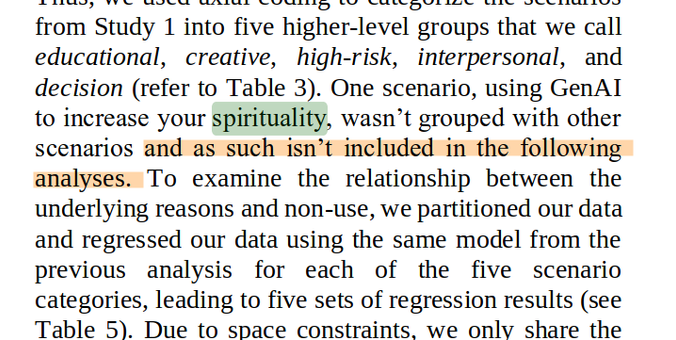I just read through a new, detailed, seemingly statistical rigorous academic study researching why people don't use AI. Its conclusions on this question are not unreasonable, and while I don't agree with all of them, there are salient points.
I am not going to give this study any direct oxygen by linking to it or naming it specifically. Because in my personal view, its entire purpose is nightmarish.
The ultimate focus is obviously on one key aspect, what do the Big Tech Billionaires need to do to suck EVERYONE into using these horrible systems. The entire study -- again, in my opinion -- is an effort to create a roadmap for Big Tech to "adjust" what they're doing to undermine the concerns non-users of the tech have, and seduce them into becoming addicted users instead.
There was no sense that not using generative AI is a valid choice, rather it's seen as an aberration that needs to be eliminated.
I found the entire study to be both interesting and disgusting.
L
